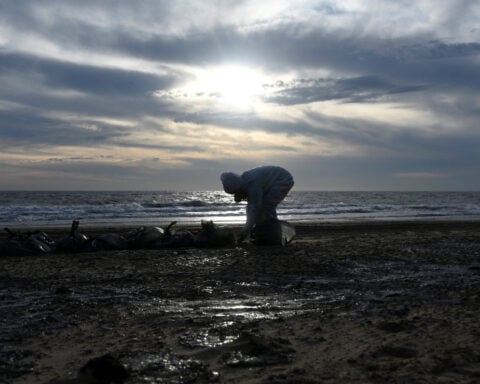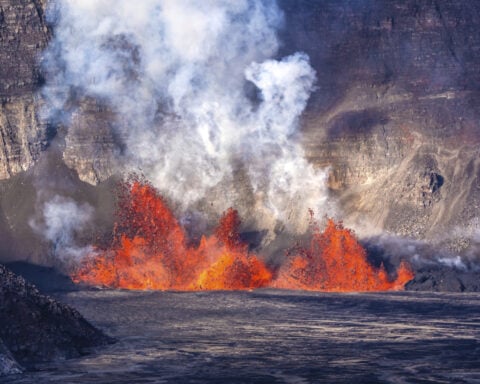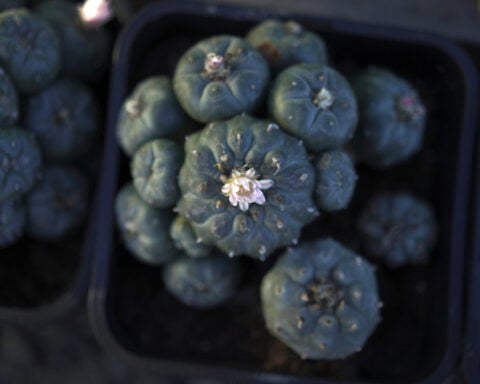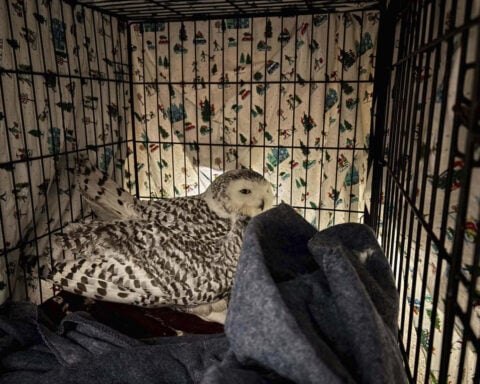Bees help pollinate over a third of the world’s crops, contributing an estimated US$235 billion to $577 billion in value to global agriculture. They also face a myriad of stresses, including pathogens and parasites, loss of suitable food sources and habitat, air pollution and climate-driven weather extremes.
A recent study has identified another important but understudied pressure on bees: “inert” ingredients in pesticides.
All pesticide products in the U.S. contain active and inert ingredients. Active ingredients are designed to kill or control a specific insect, weed or fungus and are listed on product labels. All other ingredients – emulsifiers, solvents, carriers, aerosol propellants, fragrances, dyes and such – are considered inert.
The new study exposed honeybees to two treatments: the isolated active ingredients in the fungicide Pristine, which is used to control fungal diseases in almonds and other crops, and the whole Pristine formulation, including inert ingredients. The results were quite surprising: The whole formulation impaired honeybees’ memory, while the active ingredients alone did not.
This suggests that the inert ingredients in the formula were actually what made Pristine toxic to bees – either because the inerts were toxic on their own or because combining them with the active ingredients made the active ingredients more toxic. As a social scientist focusing on bee declines, I believe that either way, these findings have important implications for pesticide regulation and bee health.
What are inert ingredients?
Inert ingredients have a variety of functions. They may extend a pesticide’s shelf life, reduce risks for people who apply the pesticides or help a pesticide work better. Some inerts, called adjuvants, help pesticides stick to plant surfaces, reduce pesticide drift or help active ingredients better penetrate a plant’s surface.
The “inert” label is a colloquial misnomer, though. As the U.S. Environmental Protection Agency notes, inerts aren’t necessarily inactive or even nontoxic. In fact, pesticide users sometimes know very little about how inerts function in a pesticide formula. That’s partly because they are regulated very differently than active ingredients.
Measuring bee effects
Under the Federal Insecticide, Fungicide, and Rodenticide Act, or FIFRA, the EPA oversees pesticide regulation in the U.S. To register a pesticide product for outdoor use, chemical companies must provide reliable risk assessment data on the active ingredients’ toxicity for bees, including the results of an acute honeybee contact test.
The acute contact test tracks how honeybees react to a pesticide application over a short period of time. It also aims to establish the dose of a pesticide that will kill 50% of a group of honeybees, a value known as the LD50. To determine the LD50, scientists apply the pesticide to bees’ midsections and then observe the bees for 48 to 96 hours for signs of poisoning.
In 2016, the EPA expanded its data requirements by requiring an acute honeybee oral toxicity test, in which adult bees are fed a chemical, as well as a 21-day honeybee larval test that tracks larval reaction to an agrochemical from the egg to their emergence as adult bees.
These tests all help the agency determine what potential risk an active ingredient may pose for honeybees, along with other data. Based on the information from these varied tests, pesticides are labeled as nontoxic, moderately toxic or highly toxic.
A chemical black box
Despite this rigorous testing, much remains unknown about how safe pesticides are for bees. This is particularly true for pesticides that have sublethal or chronic toxicities – in other words, pesticides that don’t cause immediate death or obvious signs of poisoning but have other significant effects.
This lack of knowledge about sublethal and chronic effects is problematic, because bees can be repeatedly exposed over long time spans to pesticides on floral nectar or pollen, or to pesticide contamination that builds up in beehives. They even may be exposed through miticides that beekeepers use to control Varroa mites, a devastating bee parasite.
Complicating the issue, symptoms of sublethal exposure are often more subtle or take longer to become apparent than acute or lethal toxicity. Symptoms might include abnormal foraging and learning ability, decreased egg laying by the queen, wing deformation, stunted growth or decreased colony survival. The EPA doesn’t always require chemical companies to perform the tests that could detect these symptoms.
Inert ingredients add another level of mystery. While the EPA reviews and must approve all inert ingredients, it does not require the same toxicity testing as for active ingredients.
This is because under FIFRA, inert ingredients are protected as trade secrets, or confidential business information. Only the total percentage of inert ingredients is required on the label, often lumped together and described as “other ingredients.”

Sublethal weapons
A growing body of evidence suggests that inerts are not as harmless as the name suggests. For example, exposure to two types of adjuvants – organosilicone and nonionic surfactants – can impair honeybees’ learning performance. Bees rely on learning and memory functions to gather food and return to the hive, so losing these crucial skills can endanger a colony’s survival.
Inerts can also affect bumblebees. In a 2021 study, exposure to alcohol ethoxylates, a coformulant in the fungicide Amistar, killed 30% of the bees exposed to it and caused a number of sublethal effects.
While some inerts may be nontoxic on their own, it’s hard to predict what will happen when they are combined with active ingredients. Research has shown that when two or more agrochemicals are combined, they can become more toxic for bees than when applied on their own. This is known as synergistic toxicity.
Synergism can also occur when inerts are combined with pesticides. Another 2021 study showed that adjuvants that were nontoxic on their own caused increased colony mortality when combined with insecticides.
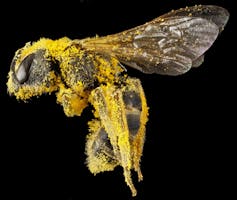
A better testing strategy
Mounting evidence on the toxicity of inerts points to three key changes that could better support bee health and minimize bees’ exposure to potential stressors.
First, environmental risk assessments for pesticides could test the whole pesticide formulation, including inert ingredients, to provide a more complete picture of a pesticide’s toxicity to bees. This is already done in some cases but could be required for all outdoor uses where bees are at risk of exposure.
Second, inerts could be identified on product labels to enable independent research and risk assessment.
Third, more testing could be required on pesticides’ long-term sublethal effects on bees, such as learning impairment. Such research would be especially relevant for pesticides that are applied to blooming crops or flowers that attract bees.
Researchers and environmental groups have been arguing for changes like these since at least 2006. However, because pesticide regulation is dictated by federal law, changes require congressional action. This would be challenging politically, since it would increase the regulatory burden on the chemical industry.
Nonetheless, rising concerns about bumblebee declines and beekeepers’ significant annual colony losses make a strong case for a more precautionary approach to pesticide regulation. With a growing world population and food supplies under increasing stress, supporting bees’ contribution to agriculture is more important then ever.

Jennie L. Durant has worked as a Science and Technology Policy Fellow with the Association for the Advancement of Science (AAAS) in USDA's Office of Pest Management Policy.
Source: The Conversation

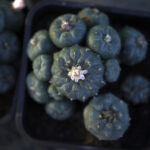 Peyote sacred to Native Americans threatened by psychedelic renaissance and development
Peyote sacred to Native Americans threatened by psychedelic renaissance and development
 Trump has pressed for voting changes. GOP majorities in Congress will try to make that happen
Trump has pressed for voting changes. GOP majorities in Congress will try to make that happen
 US holiday retail sales come in above forecast, Mastercard says
US holiday retail sales come in above forecast, Mastercard says
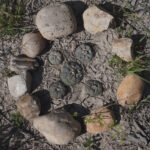 Why this Mexican American woman played a vital role in the US sacramental peyote trade
Why this Mexican American woman played a vital role in the US sacramental peyote trade
 What is the Native American Church and why is peyote sacred to members?
What is the Native American Church and why is peyote sacred to members?
 Speculation mounts over cause of Azerbaijan Airlines plane crash that left at least 38 dead
Speculation mounts over cause of Azerbaijan Airlines plane crash that left at least 38 dead
 AI is a game changer for students with disabilities. Schools are still learning to harness it
AI is a game changer for students with disabilities. Schools are still learning to harness it
 Futures lower in holiday-thinned trading
Futures lower in holiday-thinned trading
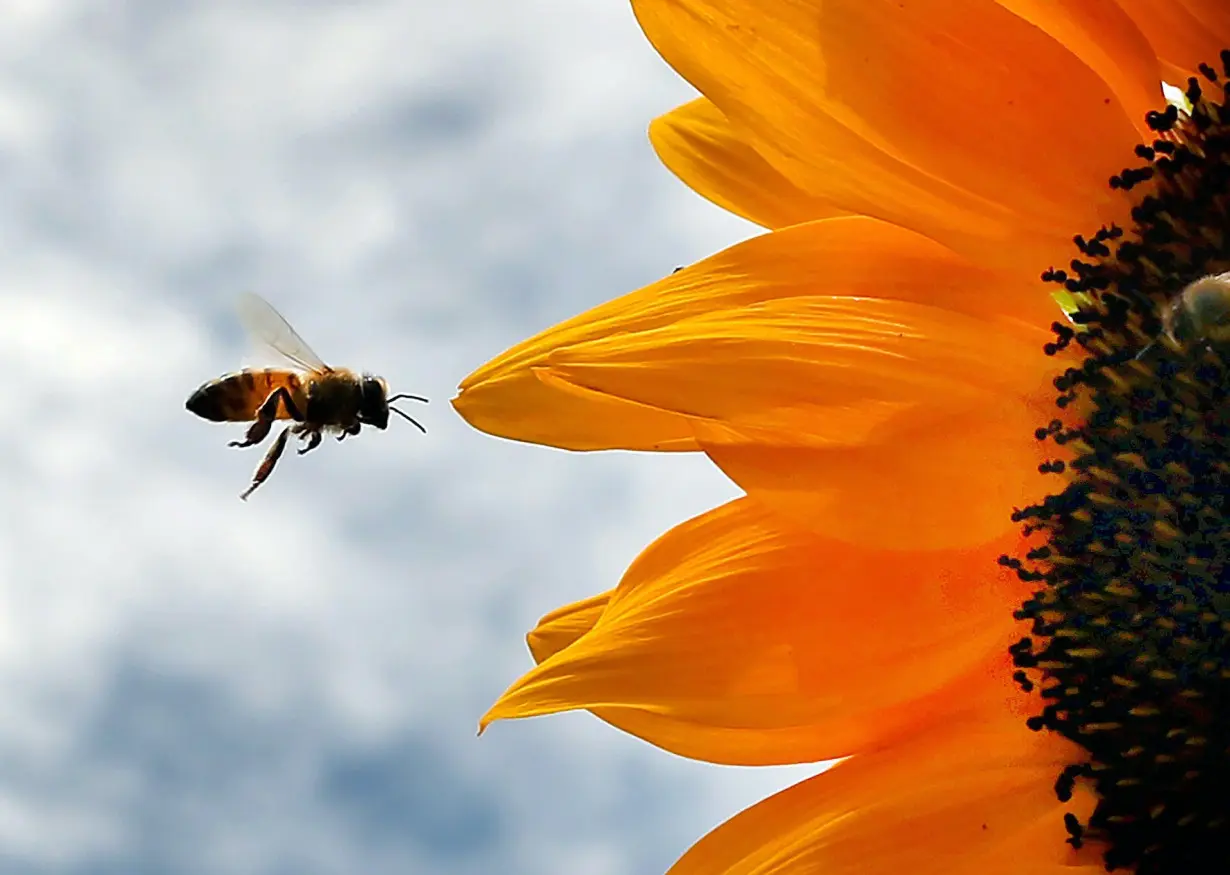 A honeybee approaches a sunflower at Wards Berry Farm in Sharon, Mass.
A honeybee approaches a sunflower at Wards Berry Farm in Sharon, Mass.
